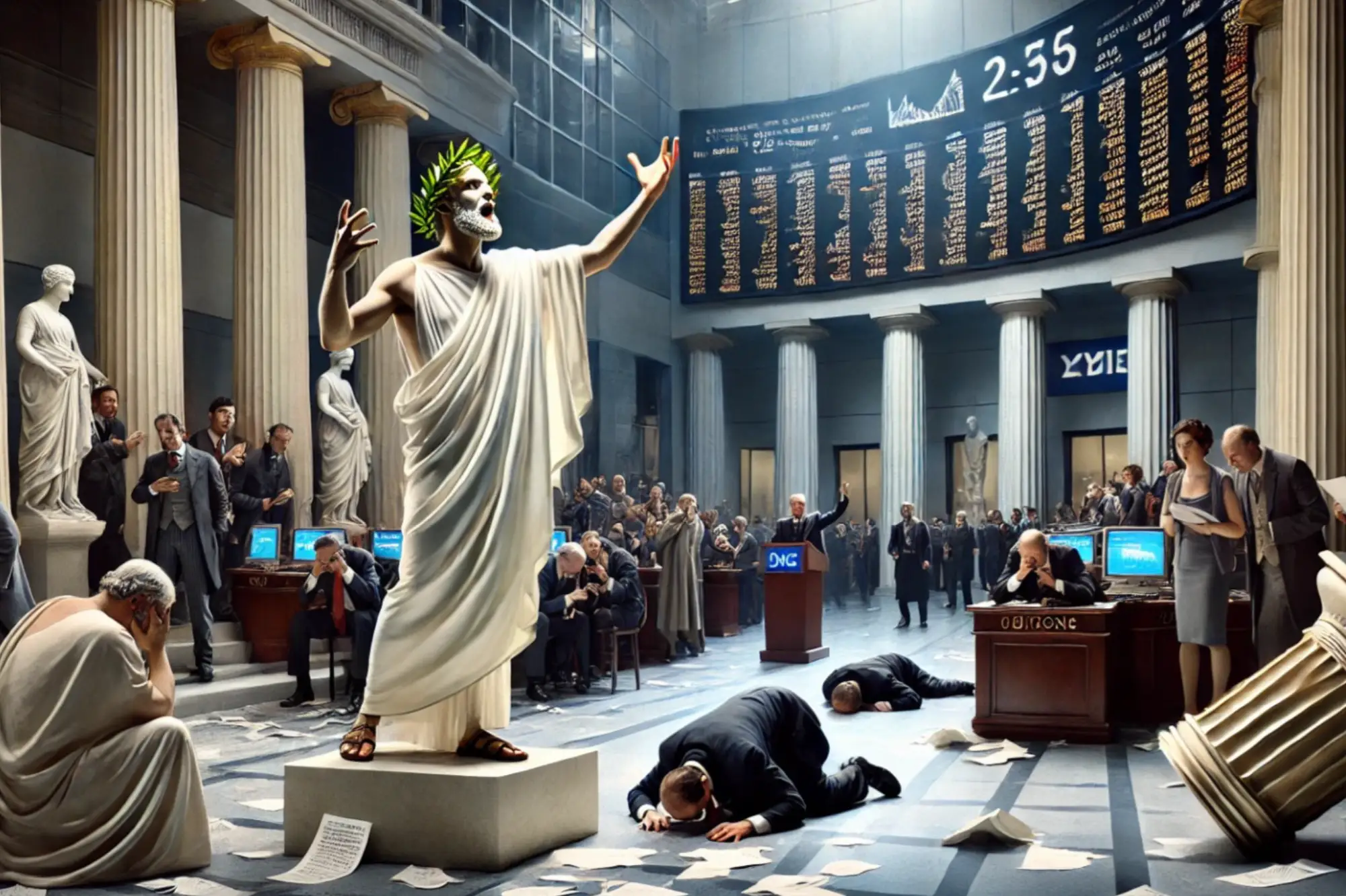Revisiting the foundations of persuasive communication and why Aristotle is as relevant today as ever.

At Templar, we ask our clients to think about their core communications objectives in three dimensions. First, the substantive content they are communicating and their message – the ‘Inform’ dimension. Secondly, how they come across when speaking – hopefully, with authenticity, integrity and impact – the ‘Engage’ dimension. And finally, how they fulfil their communications objectives and persuade their audience – the ‘Move’ dimension. These are variants of the foundational pillars of rhetoric first articulated by Aristotle in his work Rhetoric, which he wrote nearly 2,400 years ago. There, he wrote about Ethos, Logos, and Pathos.
Let’s take a step back and revisit Aristotle’s perspectives. He felt that these were essential tools for effective communication, influencing audiences by appealing to their sense of ethics, logic, and emotion. Their power lies in their ability to engage human psychology and resonate for people in different ways. This makes them timeless instruments for persuasion.
So, what do ethos, logos and pathos mean? And, what impact do they have?
Ethos: Appeal to Credibility or Character
Ethos establishes the speaker’s authority and trustworthiness. It convinces the audience that they are worth listening to because they are credible and authoritative. This is achieved through the speaker’s established expertise, gravitas, reputation, or moral integrity.
President John F. Kennedy is still celebrated as a great speaker today. His presentational ‘ethos’ was bolstered by his embedded status as President, his youthful vigour and polish, and his reputation for sincerely advocating for public service. By demonstrating his commitment to the greater good, he inspired trust and credibility.
As a function of this, in his inaugural address, President Kennedy’s now famous statement: “Ask not what your country can do for you—ask what you can do for your country” resonated so powerfully. His ethos amplified the impact of the message.
The power of ethos lies in its ability to make the audience more receptive to the speaker’s message. A speaker with presentational ethos can more powerfully influence audiences to align with their views, even on controversial or contentious issues.
Logos: Appeal to Logic and Reason
Christopher Hitchens famously said: “What can be asserted without evidence can also be dismissed without evidence”. At Templar, we push our clients to balance clear key messages with substantiating detail and analysis.
Logos persuades by using facts, evidence, data, and logical arguments. It appeals to the audience’s intellect, and their analytical mind by presenting facts and reasoning that are difficult to refute.
Martin Luther King Jr.’s “I Have a Dream” speech effectively uses logos to highlight the injustice of racial inequality. He referenced the Emancipation Proclamation and the U.S. Constitution, arguing that America had failed to deliver on its promises of freedom and equality: “We hold these truths to be self-evident, that all men are created equal.” By rooting his argument in the nation’s foundational texts, King successfully appealed to the audience’s sense of logic as well as fairness.
Logos is powerful because it provides a rational basis for action. It convinces audiences through irrefutable evidence and well-structured, intellectually coherent arguments.
Pathos: Appeal to Emotion
Pathos stirs emotions, compelling the audience to feel anger, pity, joy, or hope. This emotional engagement makes the message resonate deeply, often leading to immediate action.
In J.K. Rowling’s 2008 Harvard Commencement Address, she spoke about the importance of imagination and empathy. She shared how working at Amnesty International exposed her to stories of injustice but also inspired her belief in the human capacity for compassion. She said:
“Imagination is not only the uniquely human capacity to envision that which is not… And, therefore the fount of all invention and innovation. In its arguably most transformative and revelatory capacity, it is the power that enables us to empathize with humans whose experiences we’ve never shared.”
Pathos is impactful because humans are inherently emotional beings. A speech that connects emotionally can override doubts or resistance, fostering a sense of urgency and shared purpose.
Why Are They So Powerful?
The strength of ethos, logos, and pathos lies in their complementary nature. Ethos earns trust, logos engages the mind, and pathos touches the heart. Combined, they create a holistic appeal that is both convincing and memorable.
In an amazing 271 words, Abraham Lincoln’s Gettysburg Address exemplifies all three modes: his ethos as president during a pivotal moment; his logical appeal to unity and equality; and, the emotional resonance of honouring the sacrifices of the fallen. This blend ensures the speech’s enduring influence.
These tools of persuasion have been around and applied for more than two millennia, because they align with fundamental aspects of what it is to be human. This makes them indispensable in crafting impactful and transformative discourse.